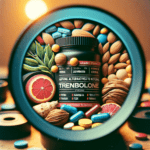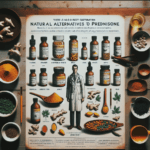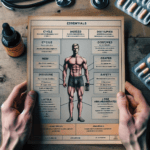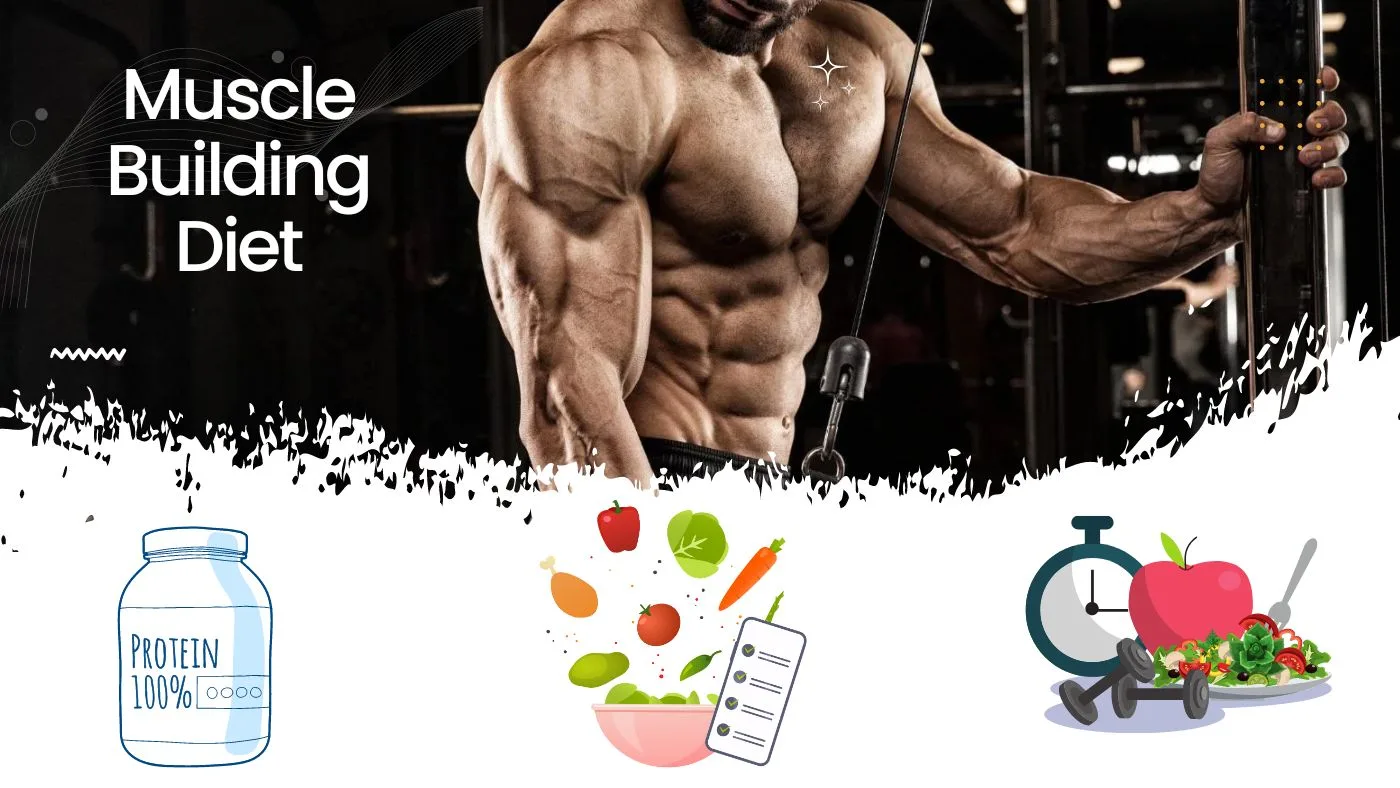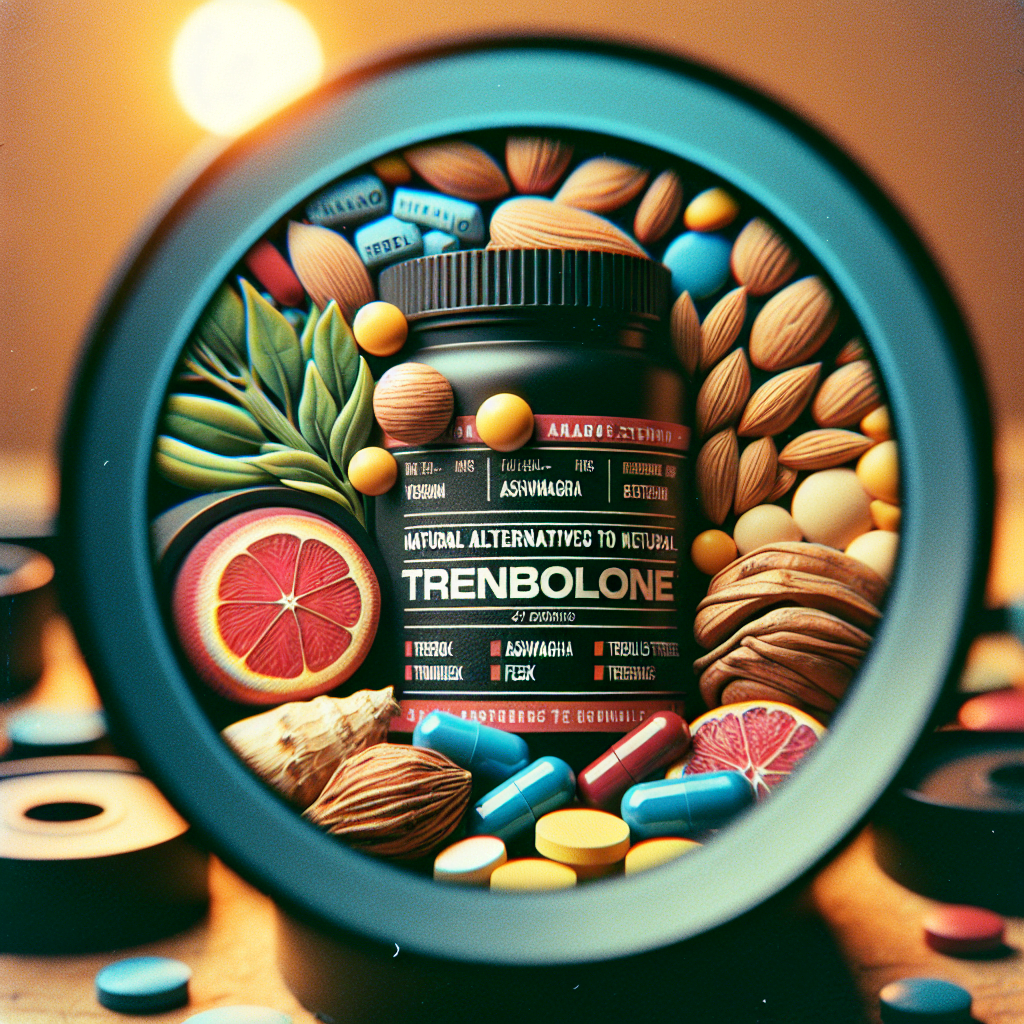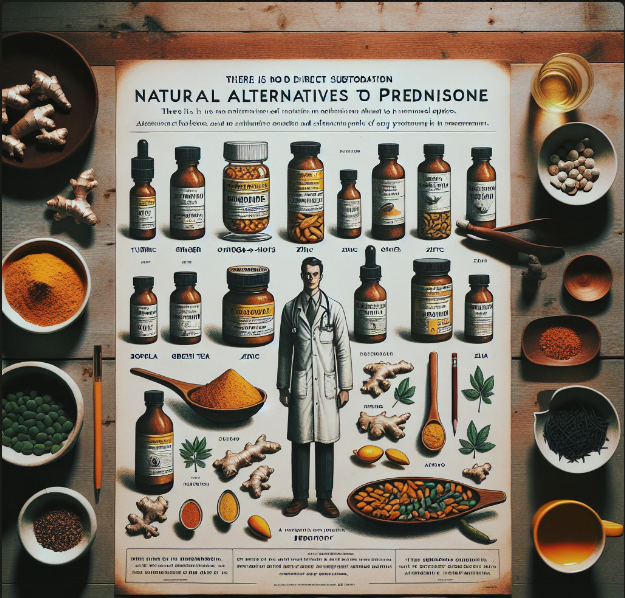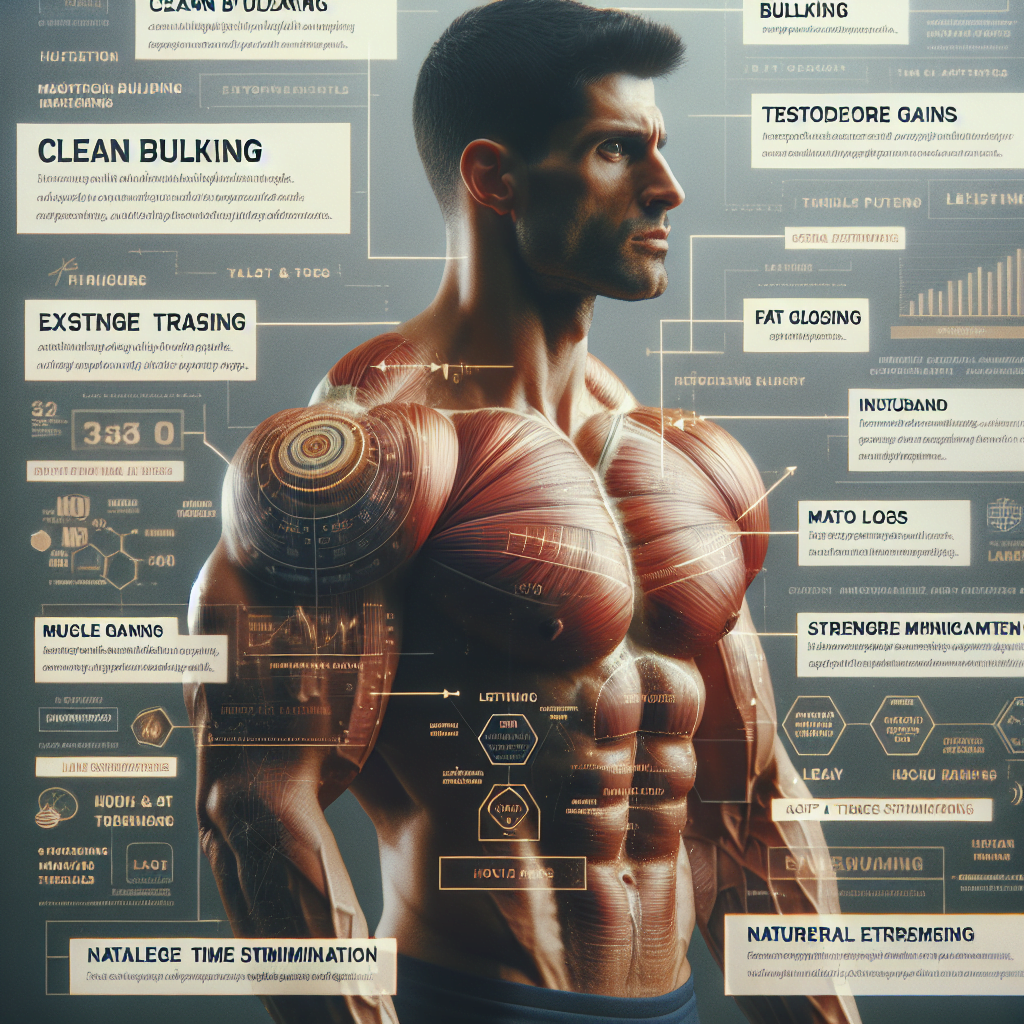Muscle Building Diet
When it comes to achieving your fitness goals, whether it’s sculpting that dream physique or simply getting fitter, your diet plays a monumental role. Welcome to Muscle Building Diet, your trusted source for health-focused guidance that prioritizes your well-being over extreme diets and grueling exercise routines.
The Foundation: Quality Nutrition (Muscle Building Diet)
A muscle building journey begins with a solid foundation: a balanced diet. It’s not just about devouring protein shakes or drowning in carbs; it’s about understanding what your body truly needs. Here, we delve into the core components of a muscle-building diet:
Protein Powerhouse
Protein is the cornerstone of muscle growth. It repairs damaged muscle fibers and stimulates the growth of new ones. Including lean sources like chicken, fish, and plant-based options like tofu, is crucial. Think of it as the building blocks of your gains.
Carbs for Energy
Carbs often get a bad rap, but they’re your body’s primary energy source. Opt for complex carbohydrates found in foods like sweet potatoes, quinoa, and whole grains. They provide a sustained release of energy to fuel your intense workouts.
Healthy Fats
Don’t shy away from fats; your body needs them for various functions, including hormone production. Avocado, nuts, and olive oil are excellent choices for healthy fats. They also add a rich, satisfying flavor to your meals.
The Muscle Building Diet – Meal Plan

Now that you know the essentials, let’s put it all together into a muscle-building meal plan that will leave your taste buds tingling and your muscles growing.
Breakfast – The Power Starter
Kickstart your day with a protein-packed breakfast. Try a scrambled egg and spinach omelet with a side of whole-grain toast. It’s a nutrient-packed combo that sets the tone for the day.
Mid-Morning Snack – Nutty Delight
For a quick pick-me-up, indulge in a handful of mixed nuts. They provide healthy fats and a dose of protein, keeping your energy levels stable.
Lunch – Lean and Green
Lunch should be a colorful plate of nutrients. Opt for grilled chicken or tofu salad with a variety of fresh veggies. Drizzle some olive oil and balsamic vinegar for that extra flavor.
Pro Tip: Drinking enough water is crucial. Proper hydration supports muscle function and aids digestion.
Afternoon Boost – Smooth Operator
Blend a protein-rich smoothie with your choice of fruits, spinach, and a scoop of protein powder. It’s a tasty way to refuel your body.
Dinner – Protein-Packed Finale
End your day with a satisfying dinner. Salmon or tempeh with quinoa and steamed broccoli is a perfect muscle-building combo.
Remember, consistency is key. Stick to your muscle-building diet, and you’ll see those gains in no time.
The Muscle Building Diet Plan – Final Thoughts
At Muscle Building Diet, we believe in the power of a sustainable muscle-building diet. It’s not about extreme measures; it’s about nurturing your body with the right nutrients. So, embark on your journey to a stronger, fitter you, one delicious meal at a time.
Stay tuned for more tips and tricks on achieving your fitness goals. Your health is our priority.✨
In the next section, we’ll explore the importance of supplements and how they can complement your muscle-building journey. Stay with us!
The Supplement Edge – Muscle Building Diet
Welcome back to Muscle Building Diet! In this section, we’re diving into the world of supplements and how they can give your muscle-building journey that extra edge.
The Role of Supplements In muscle building diet
While a well-balanced diet should provide most of the nutrients you need, supplements can be a valuable addition. Here are a few that can supercharge your progress:
Legal Steroids vs SARMs Alternatives for Strength
Legal Steroids vs SARMs Alternatives is a game-changer for muscle strength and endurance. It helps your muscles produce energy during high-intensity, short-duration activities, like lifting weights. A Legal Steroids vs SARMs Alternatives mixed with your post-workout shake can make a noticeable difference.
Branched-Chain Amino Acids (BCAAs) for Recovery
BCAAs, such as leucine, isoleucine, and valine, are the building blocks of protein. They can reduce muscle soreness, promote muscle growth, and even aid in fat loss. Sip on a BCAA drink during your workout for optimal results.
Whey Protein for Convenience
Sometimes, life gets busy, and cooking a protein-rich meal isn’t an option. That’s where whey protein comes in handy. It’s a quick and easy way to meet your protein needs, especially after a strenuous workout.
Supplement Safety
While supplements can be beneficial, it’s essential to use them wisely. Here are some tips:
Consult with a healthcare professional before adding any new supplements to your routine, especially if you have underlying health conditions.
Stick to recommended dosages. More isn’t always better and can sometimes be harmful.
Quality matters. Ensure you’re purchasing supplements from reputable sources.
Putting It All Together
Your muscle-building journey is a holistic process. It involves a balanced diet, regular exercise, and smart supplementation. Here’s a sample daily plan that incorporates everything we’ve discussed:
Pre-Workout
- Creatine mixed with water for an energy boost.
Breakfast
- Scrambled eggs with spinach and whole-grain toast.
Mid-Morning Snack
- A handful of mixed nuts.
Lunch
- Grilled chicken or tofu salad with olive oil and balsamic vinegar.
Post-Workout
- BCAA drink to aid recovery.
Afternoon Snack
- Protein-rich smoothie with fruits and spinach.
Dinner
- Salmon or tempeh with quinoa and steamed broccoli.
Remember, supplements are there to complement your diet and fitness routine, not replace them. Consistency in your efforts is the key to achieving your muscle-building goals.
Legal Steroids vs SARMs Alternatives
Looking for the best results when to muscle growth and fat loss look no further than Legal Steroids vs SARMs Alternatives that help with muscle building diet. Read more on the best Legal Steroids vs SARMs Alternatives
| Product | Alternative |
|---|---|
| Clenbuterol | Clenbuterol Alternatives |
| Winstrol | Winstrol Alternative |
| SR9009 Stenabolic | SR9009 Stenabolic Alternative |
| Andarine S4 | Andarine S4 Alternative |
| Testolone Rad 140 | Testolone Rad 140 Alternative |
| YK11 Myostatin Inhibitor | YK11 Myostatin Inhibitor Alternative |
| Ostarine MK-2866 | Ostarine MK-2866 Alternative |
| Deca Durabolin | Deca Durabolin Alternative |
| Trenbolone | Trenbolone Alternative Tablets |
| Somatropin HGH | Somatropin HGH Alternative Tablets |
| Sustanon | Sustanon Alternative Tablets |
| Anadrol | Anadrol Alternative Tablets |
| Dianabol | Dianabol Alternative Tablets |
The Supplement Edge – Final Thoughts
Thanks for joining us on this journey to discover the power of a muscle-building diet and smart supplementation. At Muscle Building Diet, we’re committed to helping you achieve your fitness goals while prioritizing your health.
Stay tuned for more insights and guidance on your path to a fitter, healthier you. Your well-being is our ultimate goal.✨
Next, we’ll explore advanced training techniques to maximize your muscle building diet potential. Stay with us as we continue this exciting journey!
Elevate Your Workouts: Advanced Training Techniques

Welcome back, fitness enthusiasts! At Muscle Building Diet, we’re dedicated to providing you with the knowledge and tools to take your muscle-building journey to the next level. In this section, we’ll explore advanced training techniques that will push your limits and sculpt the physique you’ve always dreamed of.
Progressive Overload
One of the fundamental principles of muscle growth is progressive overload. This means gradually increasing the stress on your muscles over time. Here’s how you can do it:
Increase Weight: Gradually add more weight to your exercises as you become stronger. This forces your muscles to adapt and grow.
More Reps: Increase the number of repetitions you perform for each exercise. This challenges your muscles in a different way.
Change Exercises: Periodically switch to different variations of exercises. For example, if you’ve been doing regular squats, try front squats or Bulgarian split squats.
High-Intensity Interval Training (HIIT)
HIIT is a time-efficient and highly effective training method. It involves short bursts of intense exercise followed by brief rest periods. HIIT not only burns fat but also promotes muscle growth.
A sample HIIT workout could include:
30 seconds of sprinting or burpees.
30 seconds of rest or low-intensity exercise.
Repeat this cycle for 15-20 minutes for a quick, powerful workout.
Drop Sets
Drop sets are a fantastic way to push your muscles to fatigue. Here’s how they work:
Start with a heavy weight and perform as many reps as you can.
Immediately reduce the weight and continue the set.
Repeat this process until you’ve significantly decreased the weight and your muscles are thoroughly fatigued.
Drop sets are an excellent technique to shock your muscles into growth.
Rest-Pause Training
Rest-pause training involves taking short breaks within a set to extend the overall duration of the set. This technique is excellent for building muscle endurance and pushing your limits.
For example, during a set of push-ups, perform as many reps as you can, rest for 10-15 seconds, and then continue until failure. Repeat this process for several sets.
Advanced Techniques, Advanced Results
Incorporating these advanced training techniques into your workout routine can take your muscle-building efforts to new heights. However, it’s essential to remember that with great intensity comes great responsibility:
Prioritize proper form to prevent injuries.
Allow adequate time for recovery between intense workouts.
Listen to your body. If you feel excessive fatigue or pain, it’s okay to scale back.
Advanced Training Techniques – Final Thoughts
Your journey to a stronger, more sculpted physique is an exciting one. At Muscle Building Diet, we’re here to support you every step of the way. Remember that consistency, dedication, and a commitment to your well-being are the keys to success.
Stay tuned for our next installment, where we’ll discuss the importance of rest and recovery in muscle growth. Your health is our utmost priority.✨
Keep pushing your limits, and you’ll achieve the results you desire.
The Power of Recovery: Rest and Regeneration
Hello again, fitness enthusiasts! At Muscle Building Diet, we’re passionate about helping you reach your muscle-building goals while prioritizing your overall health. In this section, we’re delving into the often underestimated, yet incredibly vital, aspects of rest and recovery.

The Importance of Rest
It might sound counterintuitive, but adequate rest is essential for muscle growth. When you exercise, you create tiny tears in your muscle fibers. Rest allows these fibers to repair and grow stronger. Here’s how you can optimize your rest:
Sleep: Aim for 7-9 hours of quality sleep per night. During deep sleep, your body releases growth hormone, which is crucial for muscle recovery.
Active Rest: On rest days, consider light activities like yoga or stretching to improve blood circulation and reduce muscle soreness.
Nutrition for Recovery
Your post-workout meal is just as crucial as your pre-workout one. After exercise, your muscles are like sponges, ready to soak up nutrients. Here’s what to consider:
Protein: Consume a protein-rich meal or shake within an hour after your workout. This helps repair and build muscle tissue.
Carbohydrates: Include complex carbs to replenish glycogen stores, providing energy for your next workout.
Listen to Your Body
While it’s essential to push your limits, it’s equally important to recognize when your body needs a break. Overtraining can lead to burnout and injuries. Signs of overtraining include persistent fatigue, decreased performance, and mood swings. If you experience these symptoms, it’s time for a rest day.
Active Recovery
Active recovery involves low-intensity exercises that promote blood flow and reduce muscle stiffness. Examples include walking, swimming, or cycling. Active recovery can help speed up the healing process without putting additional strain on your muscles.
The Role of Supplements in Recovery
Certain supplements can aid in the recovery process. Here are a couple worth considering:
Branched-Chain Amino Acids (BCAAs): As mentioned earlier, BCAAs can reduce muscle soreness and promote muscle growth. They’re a great addition to your post-workout routine.
Magnesium: This mineral helps relax muscles and can reduce muscle cramps and spasms. It’s especially beneficial if you’re pushing yourself hard in the gym.
- DBULK : DIANABOL ALTERNATIVE , A serious muscle builder for serious bodybuilders, and fast Reduce recovery time
In Conclusion
Rest and recovery are the unsung heroes of muscle building. They are the periods where your body truly transforms, healing and growing stronger. At Muscle Building Diet, we emphasize the holistic approach to fitness, where taking care of your body is as crucial as pushing it to its limits.
Stay tuned for our next installment, where we’ll dive into the world of mental fitness and how it can supercharge your muscle-building journey. Your well-being is our top priority.✨
Remember, it’s not just about the journey; it’s about enjoying every step along the way. Keep striving for those fitness goals, and you’ll see the results you’ve worked so hard for.
FAQs on Muscle Building Diet
Q) What is the ideal diet for building muscle?
The ideal diet for building muscle includes a balanced intake of lean protein, complex carbohydrates, healthy fats, and essential nutrients. Protein-rich foods like chicken, fish, and tofu are essential, along with whole grains and plenty of fruits and vegetables.
Q) What should I eat to gain muscle and lose fat?
To simultaneously gain muscle and lose fat, focus on a diet rich in lean protein, such as chicken, turkey, and fish. Incorporate complex carbohydrates like brown rice and quinoa, and include healthy fats from sources like avocados and nuts. Maintain a calorie deficit through portion control and regular exercise.
Q) How many meals a day to build muscle?
There’s no one-size-fits-all answer, but many individuals find success with 5-6 small, balanced meals a day. This approach provides a steady stream of nutrients to support muscle growth and recovery.
Q) Why do bodybuilders eat 6 meals a day?
Bodybuilders often eat frequent meals to ensure a consistent supply of nutrients for muscle growth and repair. This approach also helps regulate blood sugar levels and control appetite, making it easier to meet their calorie and protein needs.
Q) Can I eat every 2 hours for muscle gain?
Eating every 2 hours can be an effective strategy for muscle gain, as it keeps your body in an anabolic state. However, it’s essential to focus on nutrient-dense, balanced meals during this frequency to avoid overconsumption.
Q) Can you put muscle on with 3 meals a day?
Yes, it’s possible to build muscle with three meals a day, but it may require careful planning to ensure you meet your daily protein and calorie needs. These meals should be nutrient-rich and timed strategically around your workouts for the best results.

